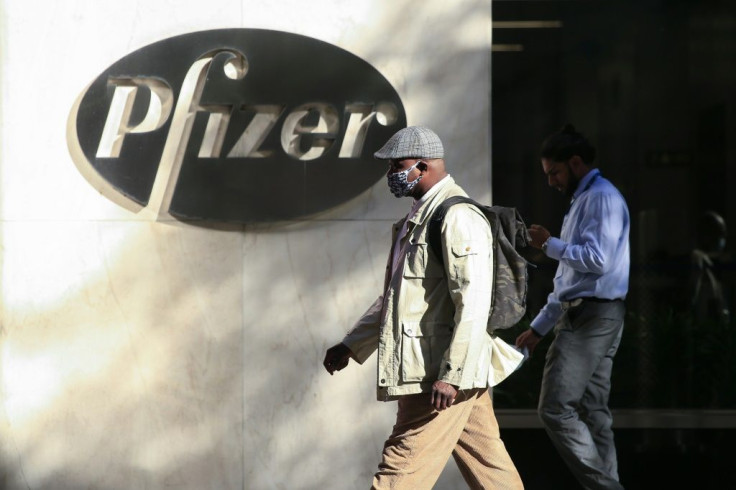Pfizer Coronavirus Vaccine Side Effects Revealed: 'More Severe Than I Thought,' Volunteer Says
KEY POINTS
- Pfizer's vaccine could cause headaches and fatigue
- One vaccine volunteer said the side effects worsened after the second dose
- Pfizer is expected to seek US emergency-use authorization in the coming weeks
Pfizer’s coronavirus vaccine could potentially cause some side effects, according to a vaccine volunteer in Austin, Texas.
In an interview on Thursday, 44-year-old Glenn Deshields shared his experience in the clinical trial and revealed the side effects he suffered were “a little more severe than I thought.”
"I had some side effects. A lot of injection site pain ... I haven't had coronavirus, so that's a good thing," Deshields told Fox News.
"Basically, I had a headache and a lot of fatigue, injection site pain ... maybe three to four days. The second one, it was similar but it was much more muted. It wasn't as strong. I think I took some Advil and they basically cleared up,” he added.
Carrie, another Pfizer coronavirus vaccine volunteer, said she experienced fever, a headache, and body aches after she was given her first dose. The 45-year-old Missouri resident said the flu-like side effects became worse after the second dose, Independent reported.
News of the side effects come after Pfizer and its German partner BioNTech announced on Monday that their vaccine candidate protected 9 in 10 people from being infected by the novel coronavirus. The drugmaker and BioNTech also said they found no serious safety concerns during the trial.
“Today is a great day for science and humanity,” Pfizer Chief Executive Albert Bourla said, following their announcement.
Pfizer is expected to seek a U.S. emergency use authorization for people aged 16 to 85 within the month. However, they would need regulatory approval for mass roll-outs of their vaccine. If granted, the drugmakers said they could potentially roll out 50 million doses before the end of the year, which protects 25 million people, Reuters reported.
The drugmaker is expected to collaborate with a network of companies, federal and state agencies, and health workers to distribute their vaccine. The federal and state governments will be responsible for directing Pfizer on where to send the vaccine and on the amount of doses needed by each area.
Pfizer will likely work with McKesson, a major medical supplier, to provide facilities such as hospitals and nursing homes with syringes, needles, and other supplies needed to administer the vaccine.
The distribution sites will also have to train employees on how to store and administer the vaccine. Additionally, they would also have to ensure that millions of Americans who are expected to get the vaccine will return three weeks later for the second dose, The New York Times reported.

© Copyright IBTimes 2025. All rights reserved.






















